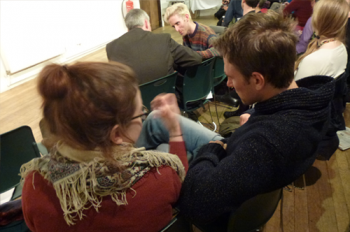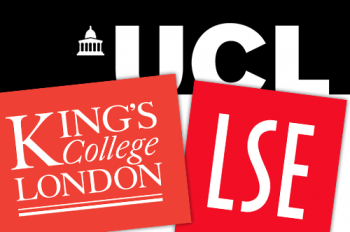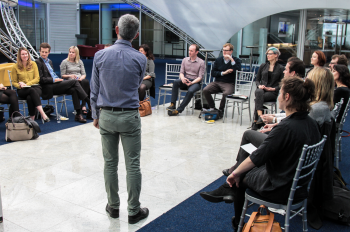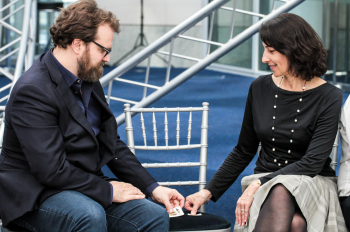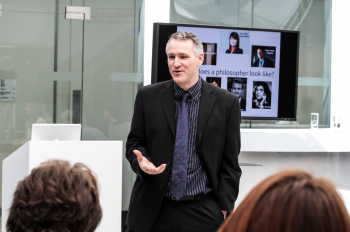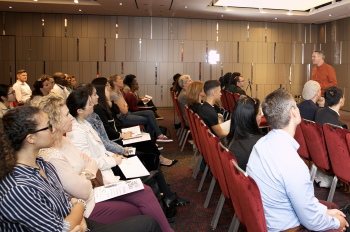Philosophical Enquiry
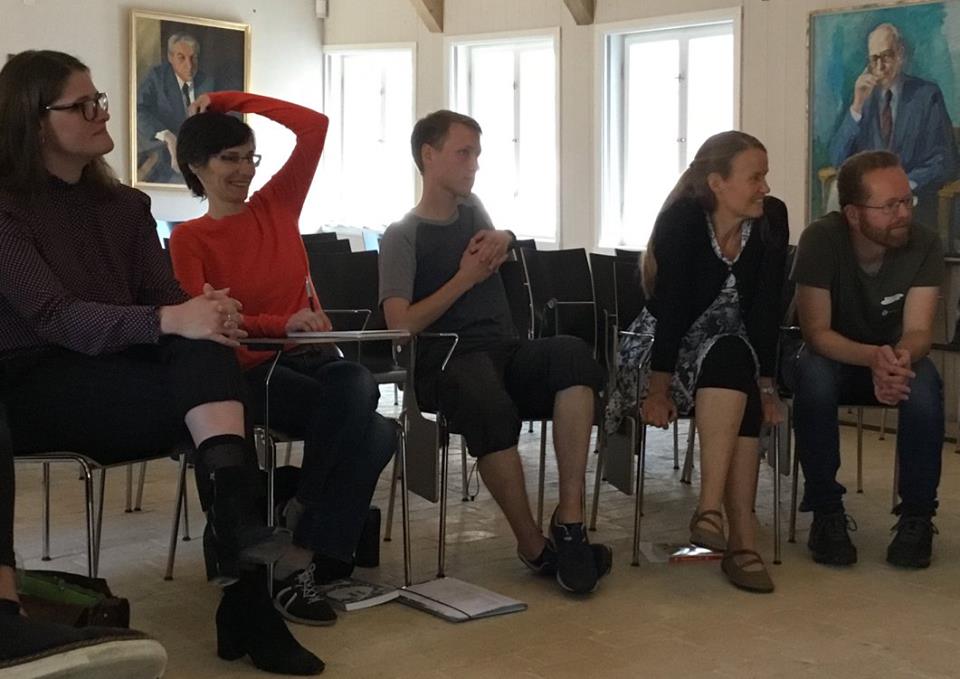
Foundations of PhiE
2 days in person
OR
5 days half-days online
Open to all
This was the most valuable part of my education in pedagogy so far. Even just the material covered on day one will revolutionize my teaching going forward. I wish I had taken this course years ago or that it was a regular part of graduate education in first or second year.
Karl Martin Adam, UNC, Philosophy post-grad
Foundations of Philosophical Enquiry Course
You can book for our next Foundations of Philosophical Enquiry online and in-person courses on our What's On page.
Dates for our next courses:
If you'd like to be kept up to date about future courses please become a member
We run courses with partner organisations and individuals. If you would like a course run in your workplace or community, then please do get in touch with Kim@philosophy-foundation.org.
Be sure before you book. A full refund can be made up to 3 weeks before the course, minus an admin fee of £50, 2 weeks before the course a 50% refund will be available for cancellation, and cancellation 1 week or less before the course is not refundable. No refund will be given for cancellations once the course has started.
What is Foundations of Philosophihcal Enquiry (PhiE)?
This course is also open to individual, teachers and practitioners wanting to train with us. No background in philosophy is necessary to join us on this course. If you do have a philosophy background to can extend the course to become accredited Specialist Philosophy Teacher with The Philosophy Foundation
Foundations of Philosophical Enquiry looks in-depth at the theory and practice of facilitating philosophical enquiries with children and young people. It is a thorough and (we are told) highly enjoyable combination of theory and practice, and is suitable for those new to P4C / PwC as well as those who have experience. Highly recommended for:
- Teachers and educators
- Students of Philosophy
- Facilitators in any field
- Workshop leaders
- People who want to have better discussions
The two-day course is £339 to attend in person or £325 to attend online over 5 days. The content on both courses is the same, you will:
- Develop teaching and questioning strategies that deepen philosophical thinking.
- Take part in a number of philosophical enquiries.
- Deliver your own philosophical enquiry.
- Come away with skills and resources applicable to a range of situations where good thinking and dialogue take place.
- Receive a handbook on everything covered on the course.
No experience of teaching children or philosophical qualification is necessary.
The Philosophy Foundation’s method (PhiE) falls under the term P4C (see our P4C page to find out how) and has been developed over 20 years of practice, working directly with the children on a daily basis.
To put it simply, I have been teaching for about seventeen years in both state and private schools, in various parts of the country: this was the best, most stimulating and invigorating course I have ever attended.
Mr Michael Erian, Primary School Teacher
Accreditation
Philosophy graduates may apply to become an Accredited Specialist Philosophy Teacher with The Philosophy Foundation (TPF) after the Foundations of PhiE course Teachers can become Associate Teachers through a similar pathway. Associate teachers are not employed by The Philosophy Foundation but are recognised as PhiE practitioners in their school or workplace.
Application must be made WITHIN 9 months of completing the course.
Full accreditation for specialist philosophy teacher training is on a selection only basis, and we cannot take on everyone who applies for accreditation at this stage. Any surplus made from training is used to create bursaries that cover the cost of onward in-school training (whether online or in-person). Bursaries are discretionary.
The fee for Accreditation or Association is £375. If you do not have a DBS there is an administration cost of £71.50 for an enhanced DBS check.
Becoming an Accredited Philosophy Teacher with The Philosophy Foundation means becoming a member of a group of philosophers who can share ideas, experiences and good practice. We offer regular get-togethers and a range of continued professional development opportunities. You will be supported in your practice in the classroom, and it will mean you will be endorsed to use our name. You will also be advertised on our website and have unrestricted access to the resources on the website. Please note, that although we support and offer work to those who become accredited through us, we cannot guarantee work at this stage.
Becoming an associate teacher means joining a group of teacher practitioners who are endorsed to use our name and who will join a mailing list for free sessions, news and training opportunities.
Please note: Accreditation is only available to those based in the UK at the current time.
The application process involves:
- Application form
- 2 references
- a DBS (child protection) check,
Successful applicants will teach 5 assessed lessons of philosophy with one-to-one support from a mentor. They will also observe a minimum of 5 sessions in school. If you pass this final aspect of the training you will become an Accredited Specialist and be able to move through the levels outlined in the document at the bottom of this page.
If you pass at Level 2, we will work with you to help find you work in the classroom. If you pass at Level 1 it is recommended to continue practicing in the classroom to achieve Level 2 as soon as possible, though you will be entitled to receive remuneration for your time at the Level 1 pay scale. If you do not reach the required standard for Level 1 we will discuss with you options for going forward. Some who have not passed the first time, do go on to pass at Level 1 and Level 2.
Thank you so much! The Philosophy Foundation training has been a fantastic experience for me. It helped me grow as a person and it gave me insights into how wonderful it is working closely to young children. Often in the classroom they said things far smarter than I would have expected. That gives me lots and lots of hope.
Stefano Santori, King's College London





